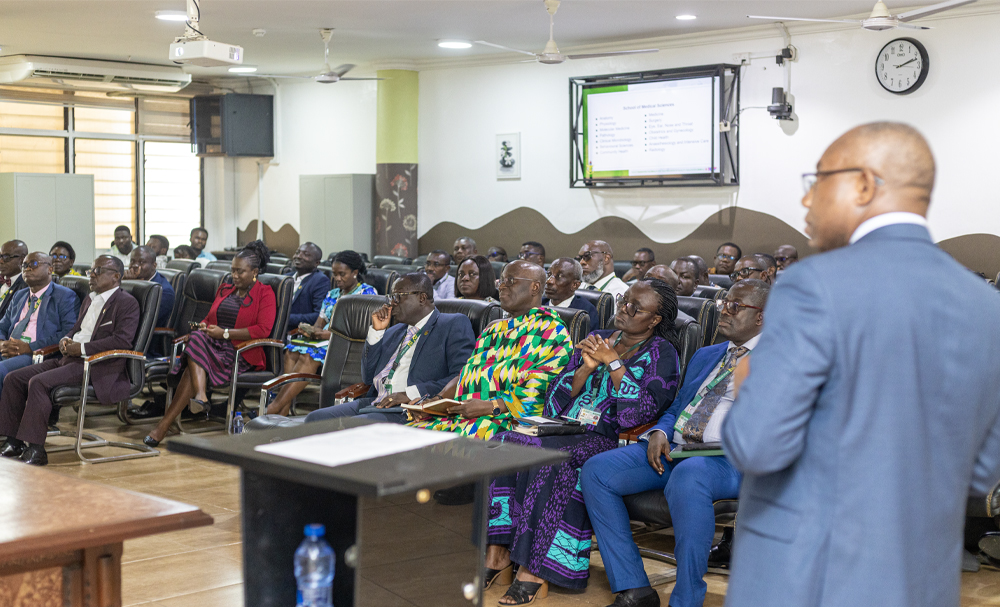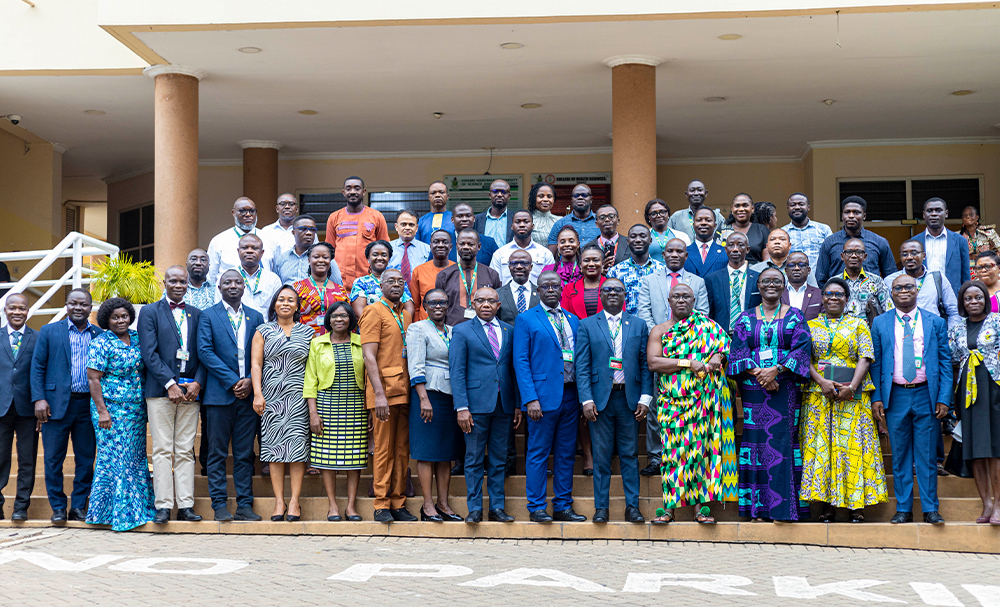Akyamfour Asafo Boakye Agyemang-Bonsu, Chairman of the Governing Council of Kwame Nkrumah University of Science and Technology (KNUST), Kumasi wants the College of Health Sciences to take a more proactive stance on pressing national and global health issues, particularly those linked to climate change, artificial intelligence (AI), and traditional medicine.

During a working visit to the College, Akyamfour Agyemang-Bonsu commended the impressive volume of research produced by the college but expressed concern about its limited impact on public policy and societal transformation.
“Research must transform society,” he stated. “There is so much being done, but very little is reaching the people who need it most. If I’m not exposed to the work, I may never know what you’re doing. I know you're trying, but a lot more needs to be done.”
Drawing on his personal experience as part of a national climate-health study years ago, Akyamfour Agyemang-Bonsu urged the College to delve deeper into the intersection between climate change and health.
He emphasized the policy relevance of such research, noting that findings in this area could directly inform how the country responds to climate-related health challenges.
A significant portion of his message focused on traditional medicine. Akyamfour Agyemang-Bonsu noted that the government has tasked KNUST with advancing research and development in this space.

He shared his vision of positioning KNUST as a global leader in ethnopharmacology and evidence-based traditional medicine.
This vision, he explained, involves bridging the gap between indigenous knowledge and modern scientific methods to create standardized herbal products for the global market.
He expressed confidence that the University has what it takes to lead this effort and outlined an ambitious path that includes developing a comprehensive scientific database of over 500 African medicinal plants and producing more than 30 standardized traditional medical products with international intellectual property protection.
The plan also involves training over 100 specialists in the scientific validation of herbal medicine, and moving closer to establishing a WHO Collaborative Centre for Traditional Medicine at KNUST.
The College board members responded positively, noting that collaborations were already underway between the College of Health Sciences and the College of Engineering to drive innovation in pharmaceutical technology and health systems.
They also revealed that plans are in motion to establish a Herbal Medical Practice Unit at the KNUST University Hospital. Akyamfour Agyemang-Bonsu welcomed these initiatives and highlighted the need for support in herbal farming and large-scale production to match future demand.
“There’s a lot we can do together,” he was optimistic.
He also addressed the growing influence of artificial intelligence in health research. According to him, the University must begin preparing for a future where AI will significantly shape healthcare delivery.

At the meeting, the Provost of the College, Professor Christian Agyare, presented a comprehensive overview of the College’s achievements and numerous initiatives.
He used the opportunity to appeal for the completion of key infrastructure projects critical to the College’s growth and impact. These included the KNUST Teaching Hospital, the Veterinary Medicine Teaching Hospital, and the School of Public Health building.

















